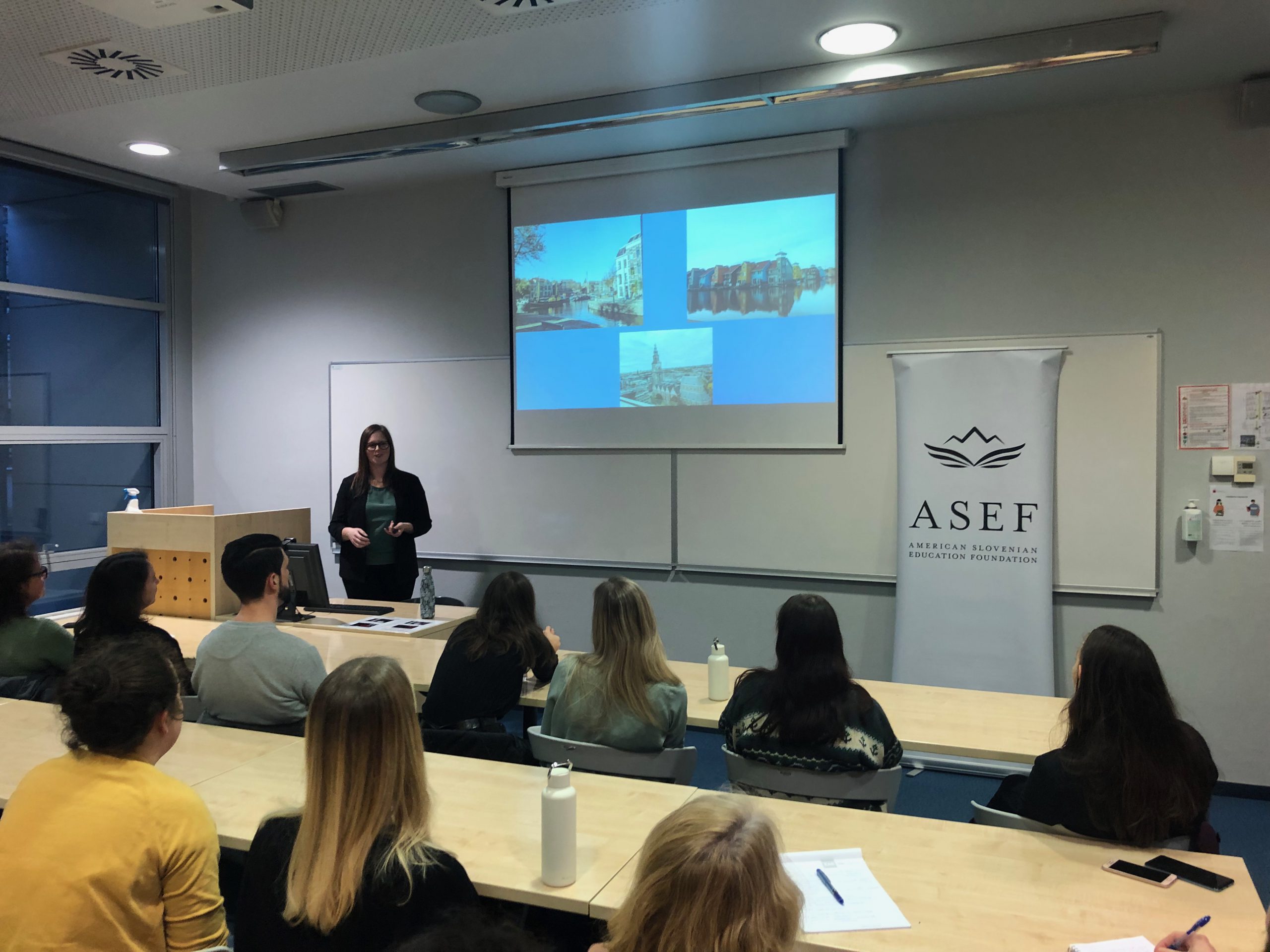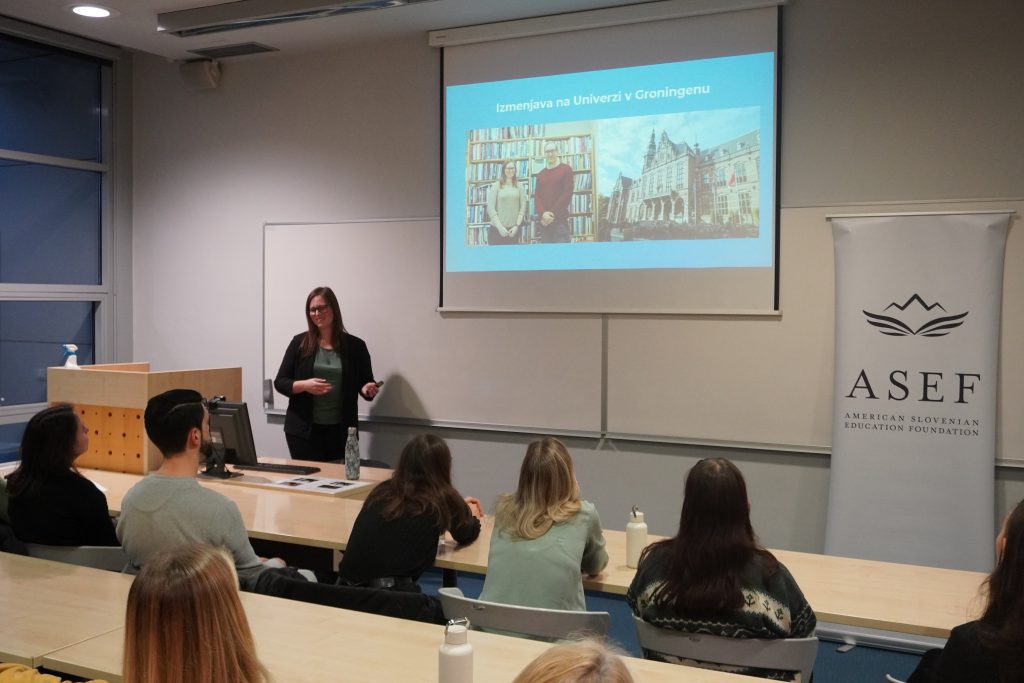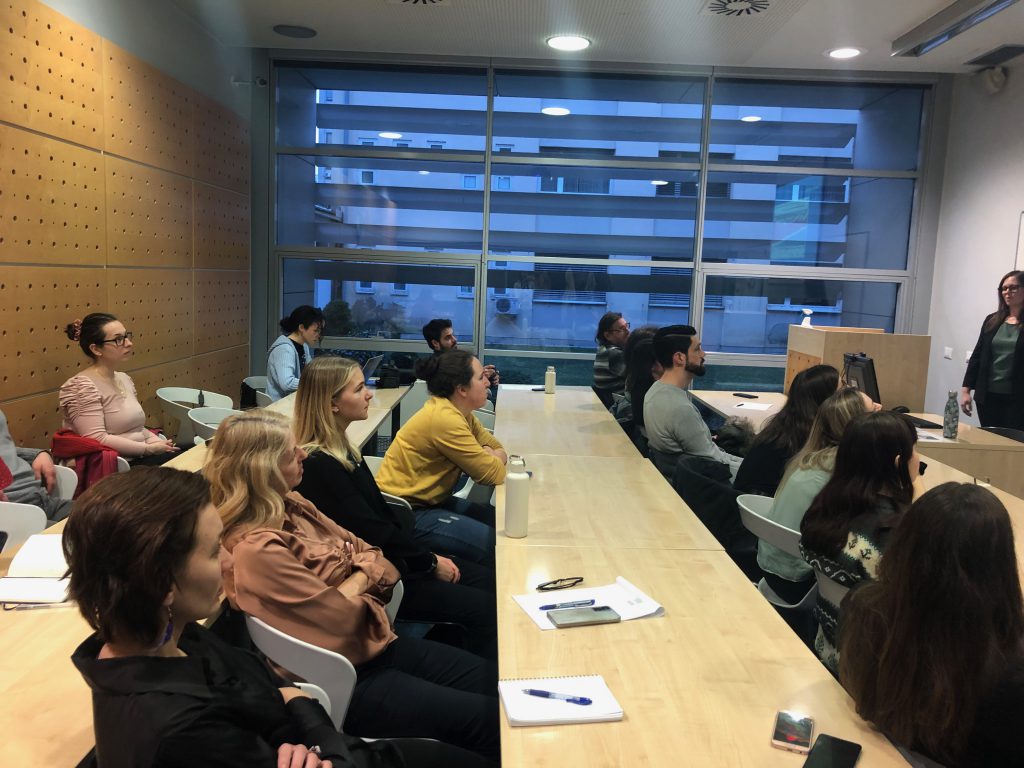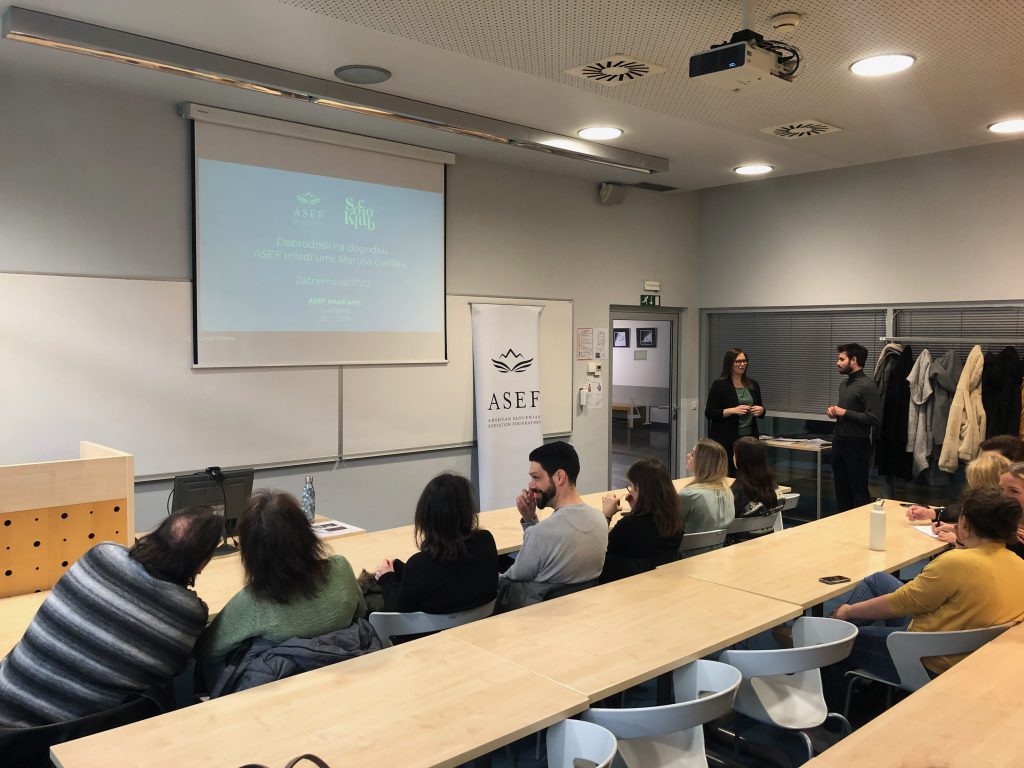
Maruša Gorišek: Science and society: Are we able to use knowledge for the benefit of society?
The American Slovenian Education Foundation, in collaboration with SocioKlub, organized a science lecture on Thursday, February 29, at the Faculty of Social Sciences, University of Ljubljana. The lecture was held by Dr. Maruša Gorišek, ASEF Junior Fellow 2021, a research associate at the Institute for Development and Strategic Analysis and Teaching Assistant at the Faculty of Information Studies in Novo mesto. She conducted her research visit with ASEF Mentor Peter Verovšek at the University of Groningen, the Netherlands.

The lecture began with a presentation of knowledge as a value and the attitudes towards said value in different European countries. Dr. Gorišek highlighted the significant changes in information accessibility that have resulted from technological advances in the past two decades. She went on to disseminate the concepts of “expert” and “specialist” and presented research analyzing the links between science, experts, policy and the general public.
She elaborated on the complex issues stemming from these links, based on findings that show a varying degree of trust in scientific institutions across Europe. These differences have been exacerbated by the recent pandemic, which significantly altered the attitude of the general public towards science and the notion of knowledge. In recent years, these changes led to a proliferation of conspiracy theories, which Dr. Gorišek attributes to both individual and structural factors. These factors altered not only the notion of knowledge as a value, but also the role of science and politics in social processes.

The lecturer added that the proliferation of predatory scientific journals, which has paralleled the rise of artificial intelligence, has also contributed to the lack of trust among the general public. In addition to publishing scientifically unfounded material, journals can be found using AI tools that often produce unacceptable results in terms of academic and scientific quality.
The lecture raised questions on how to approach the trust gap between scientists and the general public, which the speaker addressed in a rich debate with the participants. The latter shared their experiences of knowledge production and use in different international contexts and compared arguments for the emergence of the presented social issues.
The event was coordinated by Tine Šteger, an ASEF Junior Fellow, generation 2021.

The ASEF Young Minds project is supported by the Office of the Republic of Slovenia for Youth and the Government Office for Slovenians Abroad.

